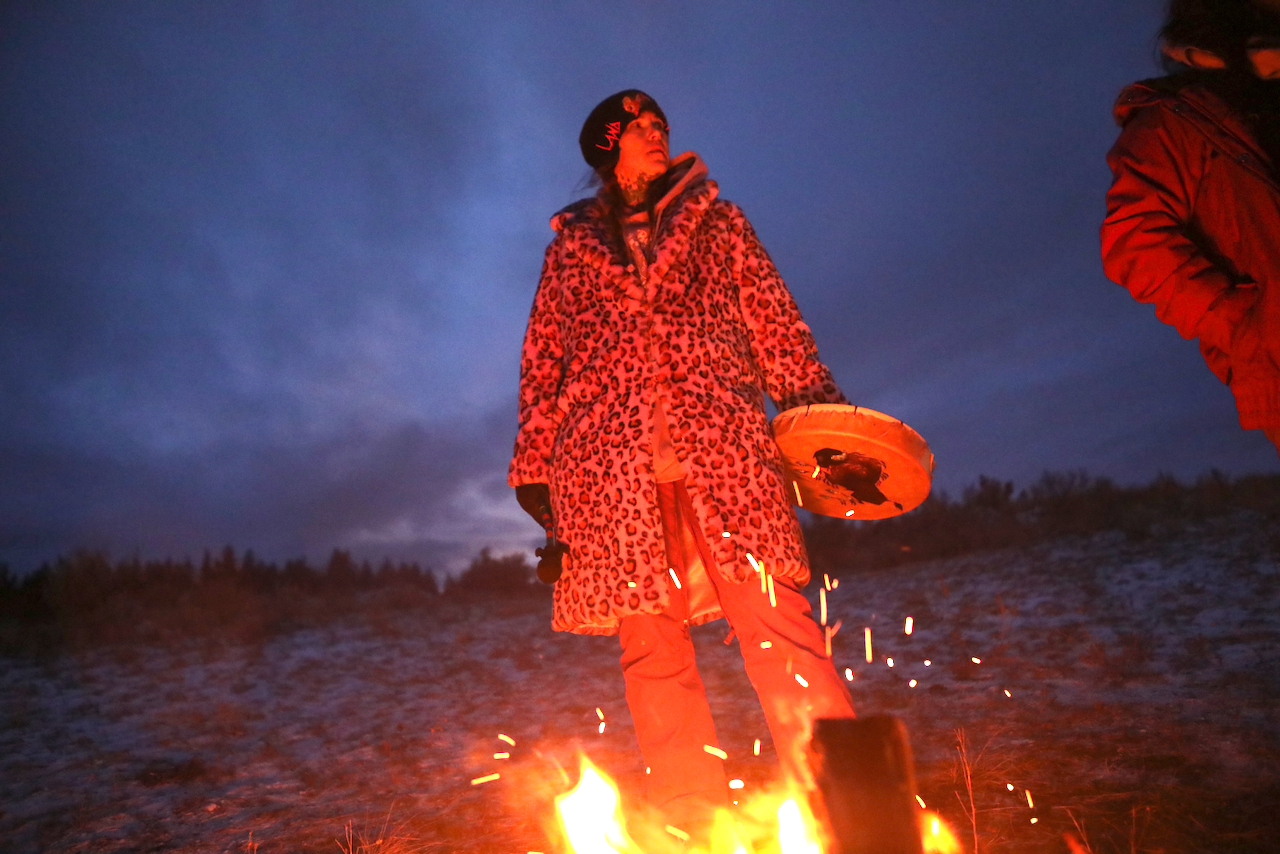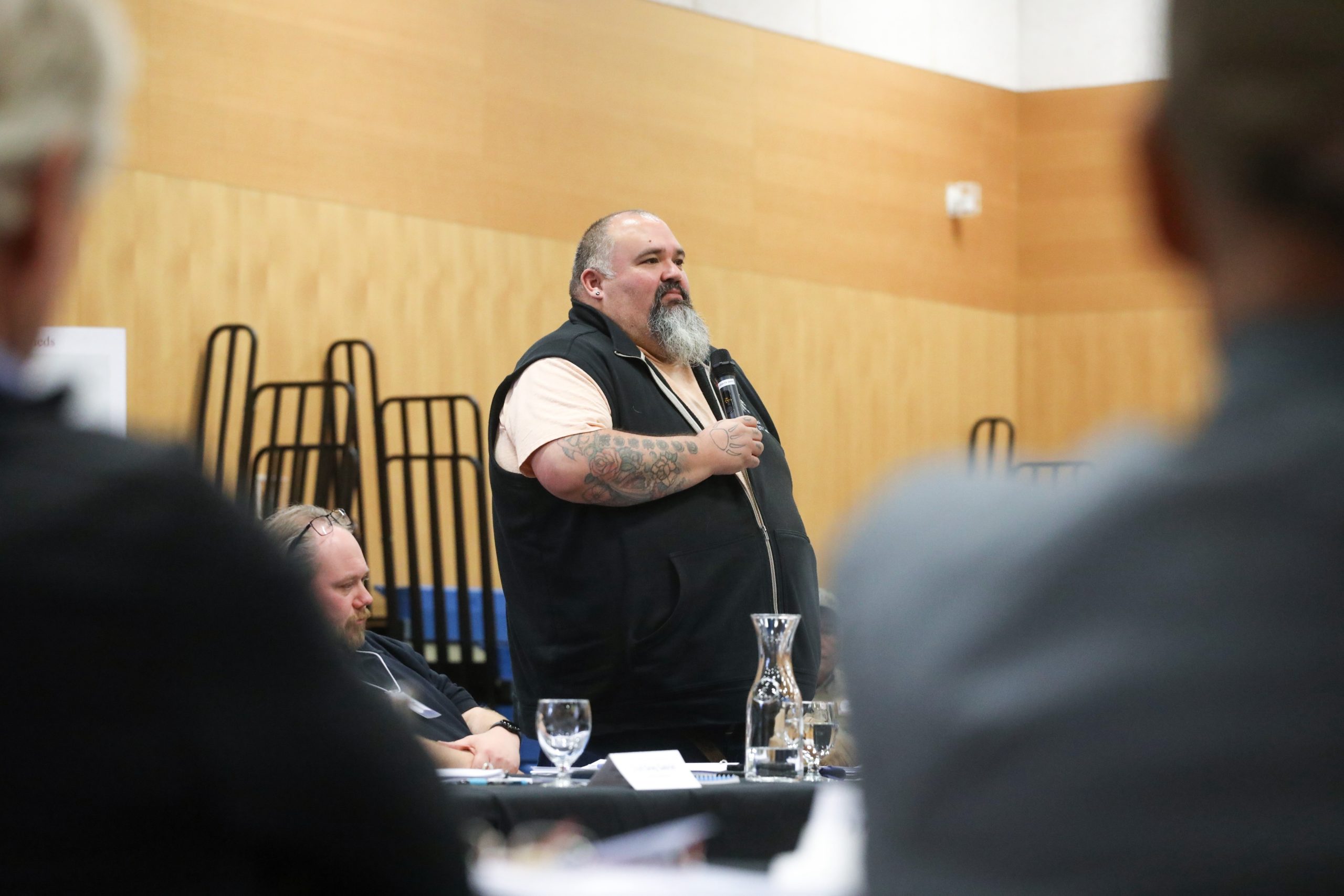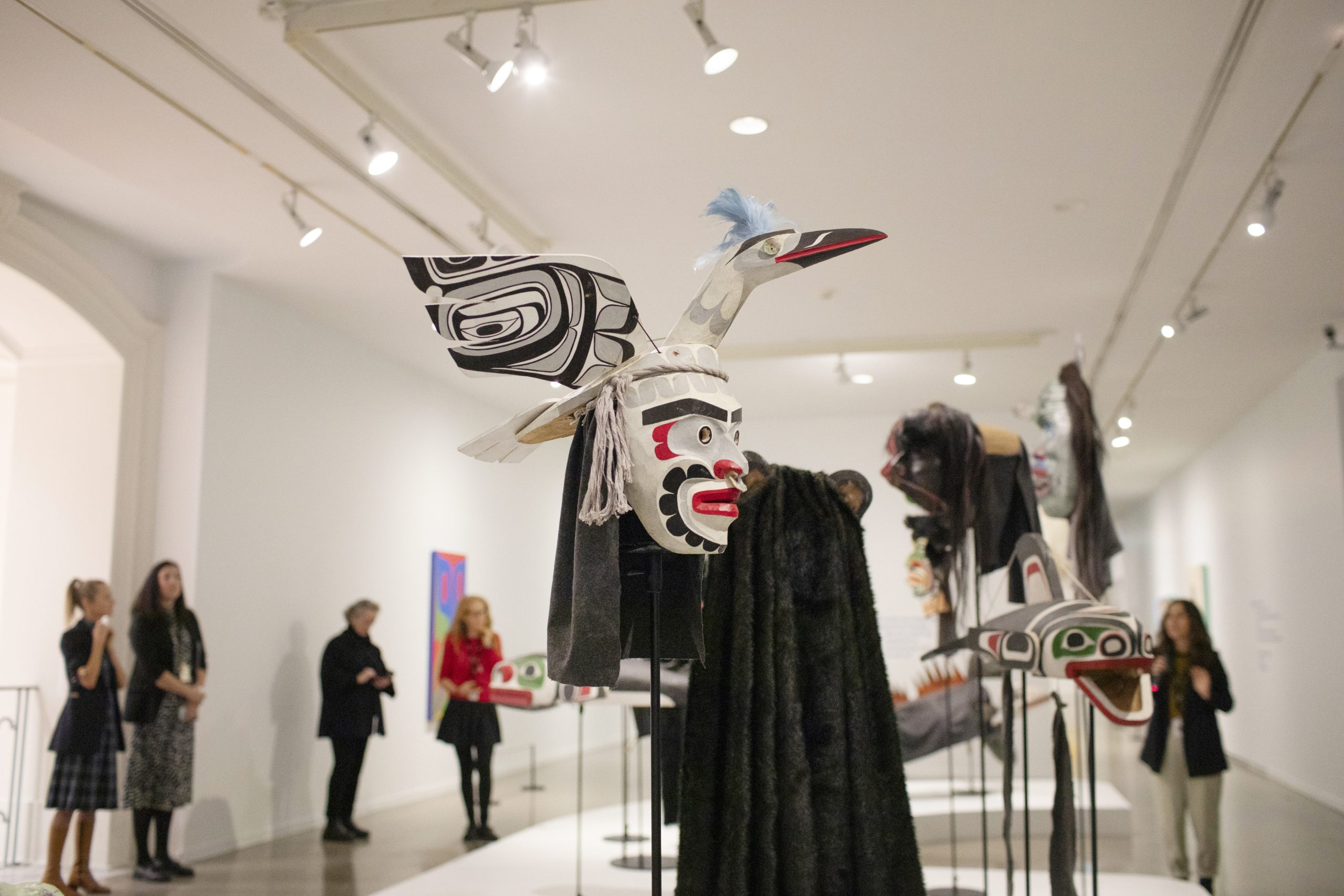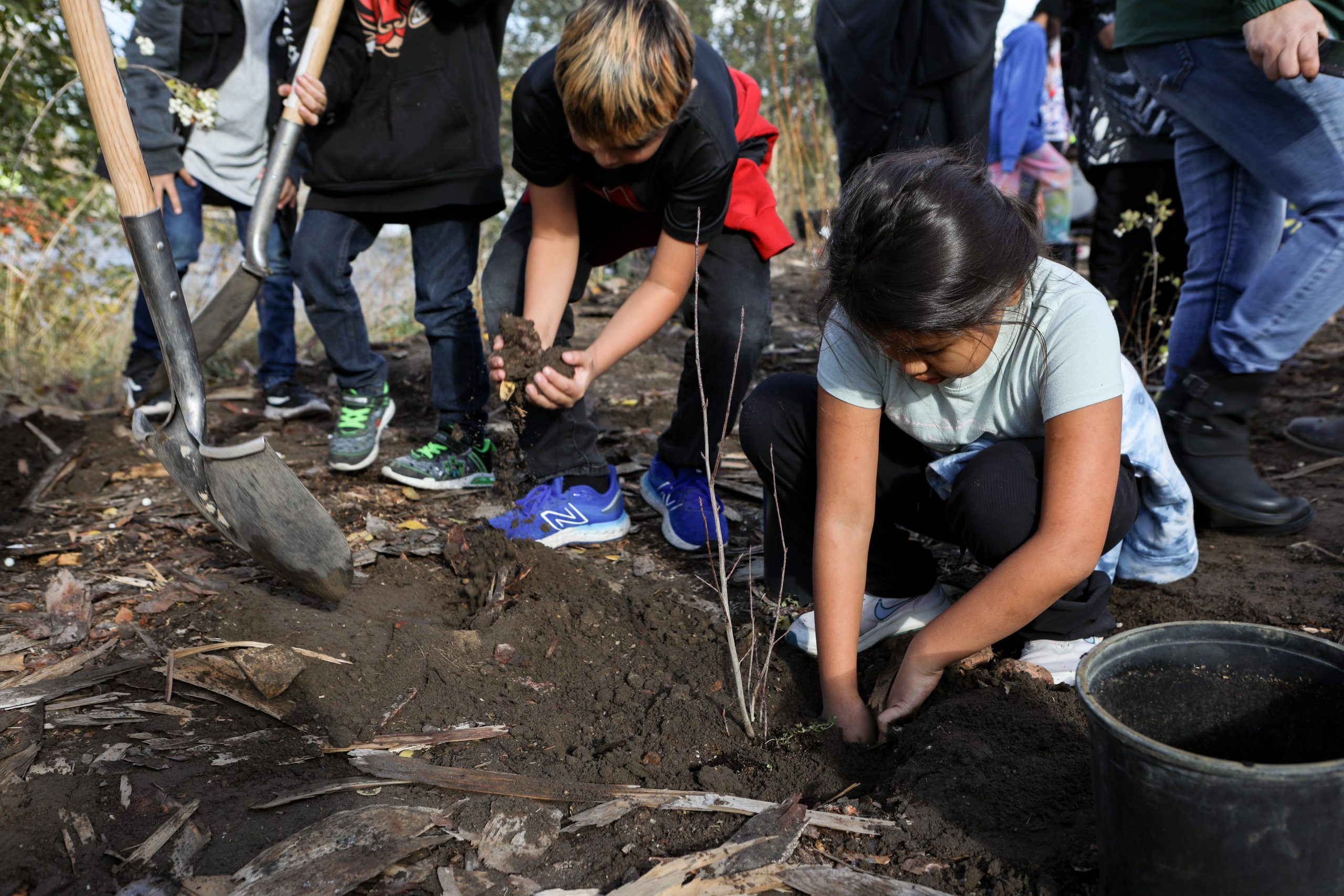‘I love our people’: Glenda Louis helped feed hundreds during COVID-19 pandemic
2020 changemakers: Louis, from Okanagan Indian Band, nominated as a person who spread light during a difficult year
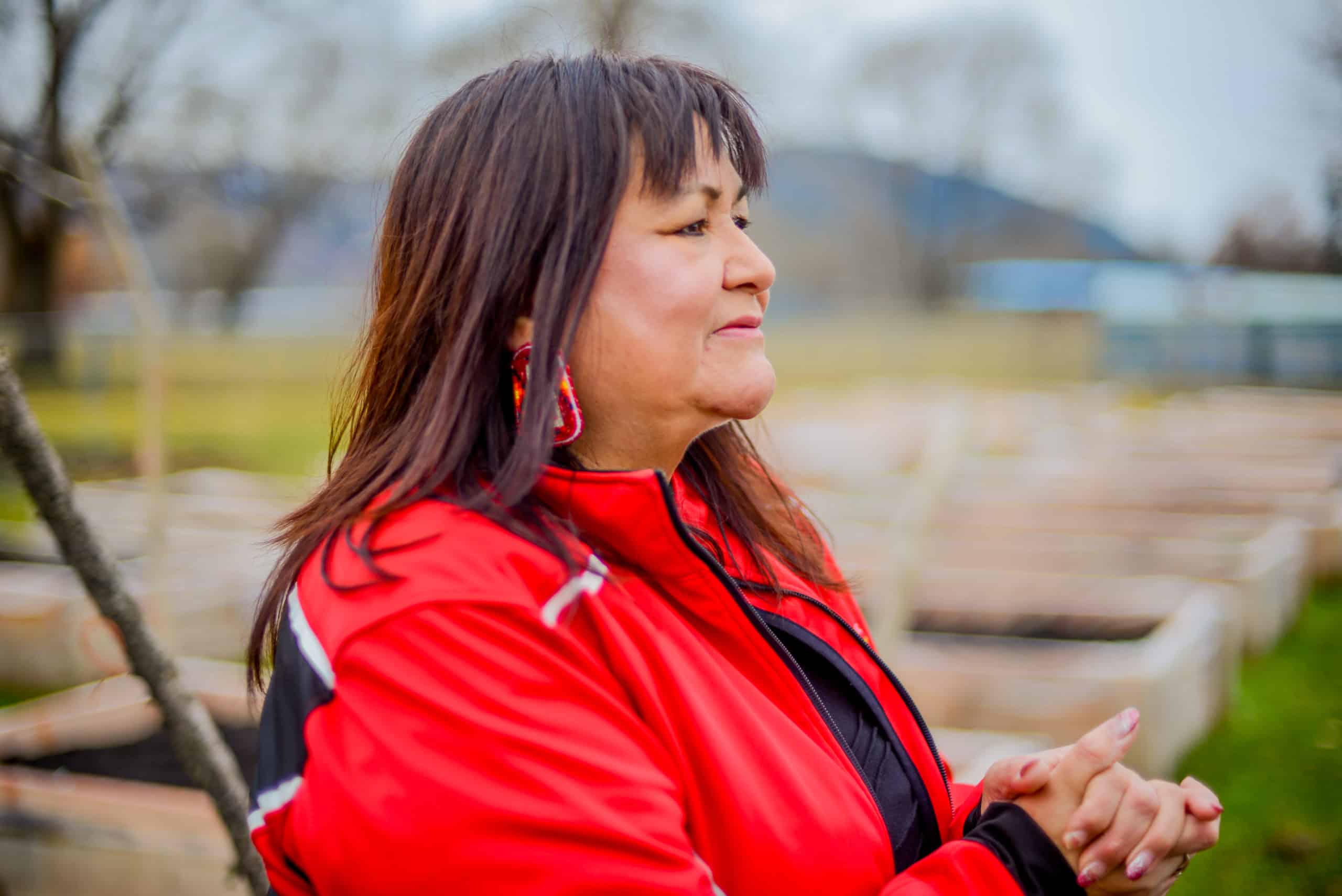
As winter winds sweep across Inkumupulux (head of Okanagan Lake), Glenda Louis opens the gates to Okanagan Indian Band’s expansive community gardens — a place of solace during a difficult year.
Louis is a program lead for her community and has overseen the food security plan during the COVID-19 pandemic. She has been in charge of caring for 1,500 plants in a community garden and delivering 2,500 salmon to community members.
At a time when food security has become even more of a critical issue for Indigenous communities, Louis has helped feed more than 400 households since March. So when IndigiNews Okanagan put a call out for community nominations, she was quickly named as a person who made a difference in 2020.
“I love our community, I love our people, and I want our people to be successful,” she says.
“I try to help and advocate where I can and how I can.”
Louis was nominated by Richard Rolke of the Vernon Chamber of Commerce, who says she deserves to be recognized because she made sure her community was fed this year.
“She helped coordinate volunteers and band resources for food hampers and community garden plots,” Rolke wrote.
“Like everything she does, Glenda demonstrated a passion for her community and wanting to help others.”
Food insecurity in Indigenous communities was a problem far before COVID-19, but as restrictions cut people off even more from outside resources, the issue was amplified.
In March, Louis was asked by the Okanagan Indian Band to oversee the community gardens and food distribution as part of a wider pandemic plan.
Standing outside of the community garden, Louis says she knew what a big responsibility that role was.
Garden initiatives involved food distributions, where cars lined up and staff and volunteers loaded trunks with veggies from the garden, Okanagan Nation salmon, and other food items purchased by leadership that would go to support the people.
Louis knew that all this work was worth it, because the reality is for some, this “could be their only meal,” she shares.
“When they first told me I’d be overseeing the garden my first thought was that I know nothing about gardening,” she says with a laugh. “I have a black thumb.”
But with the help of volunteers, including staff from the Snc’c’amala?tn Daycare, and people from neighbouring communities, the garden project has been a success.
‘The garden loves them’
Before the pandemic, the garden was non-existent, and was previously a baseball diamond often utilized for practice or games.
Now, the entire area has been transformed into a large-scale garden filled with boxes of bright vegetables, including tomatoes, cucumbers, peppers and squash.
Walking through the garden aisles, Louis says that people of all ages work in the garden, including children from the nearby daycare, who are learning to harvest their own vegetables.
In Syilx beliefs, it is known that the land will love you as you love it, so for Louis, seeing the children putting their hands in the soil and harvesting foods planted by their community has been far more than an activity, but an act of intergenerational love and teachings.
“The garden loves them,” she says.
Louis says engaging in this important initiative not only taught her about food sovereignty and growing food, but it also brought her community together in much the same way.
Louis says that for her what brought her a huge sense of accomplishment was “that everyone did have access to food overall,” with volunteers coming and going in a steady stream.
“We’re prideful people, so it’s really hard for us to ask for help.It was done in such a good way that people could just come up and get food,” she says.
“You didn’t have to identify, it wasn’t based on your financial need.”
Being a single mother herself, Louis recalls how difficult it can be to make ends meet. She says it’s important to Syilx People to make sure children and Elders eat first.
“I know a lot of people who have been in that situation,” she says. “You don’t even need to be single, you could just be working really hard and things just happen in life and you’re struggling.”
One of the most heartwarming things for Louis was having Elders show up to help with the garden. While they visited, they shared stories of their gardens growing up and how the Okanagan Indian Band community once helped to provide food from their gardens and farms for Vernonites during the Great Depression in the 1930s.
“That was really amazing to hear that history, and nobody talks about that history,” she says.
One of Louis’s favourite memories from the gardens was when an Elder,on her way to a medical appointment in Vernon, told the community’s homecare worker that she would rather be at the community garden, saying: “I don’t want to go there, take me to the garden.”
Author
Latest Stories
-
‘Bring her home’: How Buffalo Woman was identified as Ashlee Shingoose
The Anishininew mother as been missing since 2022 — now, her family is one step closer to bringing her home as the Province of Manitoba vows to search for her
-
Will you help us tend to the fire?
IndigiNews is launching a fundraising campaign to support our storytelling into 2026



